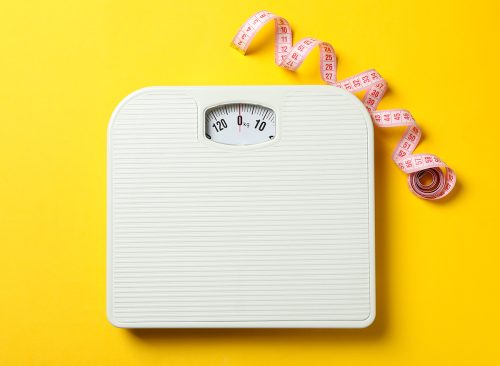
One of the most frustrating things about weight loss is the tendency of those lost pounds to creep back. A campaign of intense dieting and exercise can be interrupted by real life, causing a rebound on the scale, frustration, and potentially more weight gain. The cycle can start and repeat, leading some to abandon their efforts altogether. If you want to see real weight loss you can maintain, Health recently reported on what studies show are the realistic goals and patterns to embrace and the traps to avoid. The good news: It is possible, and perhaps easier than you think once you give yourself a break. These are key science-backed weight loss tips for long-term results.

Experts agree: The safest and most sustainable pace of weight loss is about 1 to 2 pounds a week. More rapid drops are more difficult to maintain and can even be dangerous. “Rapid weight loss is defined as losing more than 2 pounds per week for several weeks,” reports Health. “Compared with rapid weight loss, the slow-and-steady variety has been shown to result in the loss of more pounds of total fat and ultimately a lower body fat percentage.”

However, weight may come off more quickly if you have a larger amount to lose. Consider a 200-pound woman with a 150-pound woman of the same height and activity level. If both women ate an identical low-calorie diet, the 200-pound woman would lose weight faster because she had a larger calorie deficit—the 150-pound woman requires fewer calories to maintain her weight than her heavier counterpart.

Keto, paleo, intermittent fasting—weight loss fads come and go, but science has found that the closest thing to a magic bullet is pretty boring. “A 2021 study published in the Journal of Obesity & Metabolic Syndrome concluded that while there is no single best strategy for weight management, an energy or calorie deficit is the most important factor for achieving weight-loss success,” Health reports.

Because calorie deficits shrink as your body does, weight-loss plateaus happen. Which means it’s time to amp up your efforts. “Those last 10 pounds are going to be much more stubborn than the 50 pounds that may have seemed to melt off,” Jamie Johnson, RDN, a board-certified registered dietitian nutritionist, told the news outlet. “To lose those 10 pounds, try decreasing your calorie intake or increasing your exercise time or intensity.”

It’s not just about total calories consumed—the quality and timing matter. Swapping processed foods and refined grains for whole foods (like vegetables and whole grains) and not eating the majority of your calories late at night may help speed your weight loss, studies suggest.

Consuming too few calories can put your body into starvation mode, stalling your metabolism. The body reacts to what it thinks is a scarcity of food and tries to hang on to whatever body fat it can.
RELATED: Woman Lost 127 Pounds After Changing These Breakfast Habits

“Very rarely is weight loss linear, so do not get discouraged if you see your weight go up a few pounds,” registered dietitian nutritionist Jamie Johnson told Health. If you’re strength training—which experts recommend everyone do regularly, as it builds muscle and bone density—you might see your weight increase. “Don’t be so caught up in the number on the scale. Instead, gauge how you feel in your clothes.”














